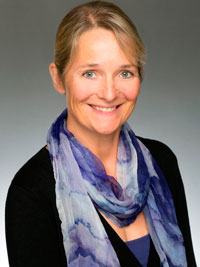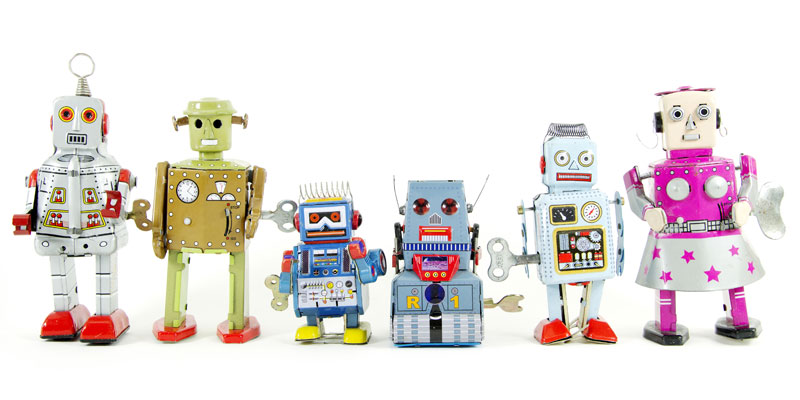Naomi Climer is President and a Fellow of the IET, and is former President of Sony’s new global division – Media Cloud Services, with a mission to develop cloud based services for all parts of the media industry worldwide, after previously heading Sony’s B2B organisation in Europe (Sony Professional). She studied at Imperial College, London, before training as an engineer at the BBC and working in technical roles in BBC Radio, BBC World Service and BBC News as well as at ITV and in local radio. Naomi has a strong interest in diversity issues and has been an active campaigner for gender diversity within Sony and within the engineering profession in the UK, resulting in her short-listing for a WISE Women of Outstanding Achievement Award For Leadership and Inspiration in 2012.

“…If you can’t please everyone don’t worry – as long as you’re clearly trying to do the right thing for the company and operating with integrity, people will understand…”
Naomi, please can you tell us about your career to date and what first got you interested in engineering?
I started out as a trainee engineer at the BBC after gaining a degree in Chemistry from Imperial College London. My time at the BBC was vital in launching my engineering career and gave me experience in a range of areas, including news and radio. During my early career, I also spent time working for local radio as well as ITV.
I have headed Sony Professional in Europe and up until recently, was President of Sony’s Media Cloud Services, where I was based in the U.S. I have always been an active contributor to the IET as well, being a member of the Board of Trustees since 2010.
As previously mentioned, I studied engineering at a higher education level but made the move from chemistry to engineering around 1987 because at that time, the BBC was trying to get women to become engineers, much like today really.
What does it mean to you to become the first female president of the IET in its 144 year history?
Whether male or female, I feel it’s a great honour to become president of the IET. Having been on the Board of Trustees for the past five years, I feel very involved with the IET and becoming president will give me even more opportunities to do so. I hope that the role will enable me to make a difference in the world of engineering and it would be great to encourage more women to become president in the future.
What are your plans for your presidential year?
I’m sure my presidential year will be a busy one. I’m very passionate about engineering so this coming year will be about getting as many people involved as possible, and increasing diversity among engineers.

I feel that engineers deserve more credit for the hard work that they do as well. Living in California, engineers are treated so well, almost like rock stars. In the UK we don’t have anything like that. Engineers sort of ‘get on with it’ while no one is truly appreciating the work that they do. I think the stereotypes surrounding engineers in the UK have changed and improved, but we still have a way to go.
If you want to make a difference in the world, whether with science and health, or technology, engineering really is a great path to go down; I think that is an important message.
At the end of my presidential year, I would like to think that the general public’s opinions towards engineering will have changed for the better. I think that is how I will measure my success as a president. At the end of the year, I will ask myself: “Has the image of engineering changed for the better? Are people more aware of the engineering that is all around them as a result of my year as president?”
We hear lots of clichéd male dominated culture in Silicon Valley. You lived in Los Angeles, rather than San Francisco, but what were your perceptions of the U.S. culture for women in tech?
Perhaps surprisingly to some, the stereotypes around women in tech in the U.S. are far more relaxed than in the UK. I found that they take a much more positive and female friendly approach. While diversity is still an issue there, it is not as much as it is here in the UK.
You are a British woman who worked for a Japanese-owned company in the U.S. What was it like to be a diversity champion in Sony?
In one word: challenging.
I worked a lot with diversity champions in Japan who are dealing with deeper issues of diversity both in society and the workplace. It really showed me that women all over the world are facing different diversity issues which is something that really needs to be tackled. The actual campaign work was positive though as it seemed to resonate with men who wanted to be part of a diverse workforce.
The UK’s education system is often criticised for forcing teenagers to make choices that reduce career flexibility at an early age. What changes would you like to see?
Unfortunately, schools in the UK require students to make choices on GCSE subjects at the age of 13 or 14 while A Level or BTEC decisions are made at 15 or 16. This can often end in them ruling out a career in STEM (science / technology / engineering / maths). In the U.S. though, I found that students can wait until the age of 20 before having to streamline their career choices, giving them much more time to consider what they want to do.
If the UK system is to continue, it is important that students have access to the relevant information, advice and expert knowledge from those in industry when making such choices. We must remember that young people are key to the future of engineering.
What was the best piece of advice you received at the start of your career?
Quite a short and sweet message really: If you can’t please everyone don’t worry – as long as you’re clearly trying to do the right thing for the company and operating with integrity, people will understand.
How do we speed up the process of change when it comes to diversity?
Of course diversity is important, especially when it comes to engineering, as diversity can lead to the discovery of new ideas. The more mixed a team, whether in terms of gender, age or class, the better it will be at coming up with solutions to issues. For engineers, this is THE most important thing. What possible reason could we have for not encouraging diversity?

I think that role models are an incredibly important part though. I’ve mentioned before that it would be great to see characters such as Doctor Who and James Bond in female form. I’m not going to create a campaign for this, I just think that role models have a huge impact on how we think about things.
In terms of encouraging women into engineering, there isn’t enough passion and energy surrounding it. The IET Young Woman Engineer of the Year Awards are great for this however. They provide young women with positive role models for STEM subjects as there is definitely a shortage of these.
https://twitter.com/naomiclimer
https://www.facebook.com/TheInstitutionofEngineeringandTechnology
https://www.linkedin.com/company/iet





